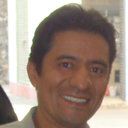Phthalate exposure, flavonoid consumption and breast cancer risk among Mexican women.
キーワード
概要
To evaluate if selected phthalate exposure and flavonoid intake interact on breast cancer (BC) risk.
Interviews and urine samples were obtained from 233 women with histologically confirmed BC and 221 healthy controls matched by age and place of residence, from various states of northern Mexico. Urinary metabolites concentrations of diethyl phthalate (DEP), butyl benzyl phthalate (BBzP) and dioctyl phthalate (DOP) were determined by solid-phase extraction coupled with high-performance liquid chromatography/isotope dilution/tandem mass spectrometry. Using a semiquantitative food frequency questionnaire, consumption of five types of flavonoids (anthocyanidins, flavan-3-ols, flavanones, flavones and flavonols) was estimated according to three food groups: vegetables, fruits and legumes-oil seeds.
A higher intake of anthocyanidins and flavan-3-ols (from vegetables), synergistically increased the negative association between BBzP and BC. No other significant flavonoid-phthalate multiplicative interactions on the risk for BC were found.
The consumption of some flavonoids may interact with exposure to phthalates on the risk of BC. Epidemiological and underlying mechanisms information is still insufficient and requires further investigations.


